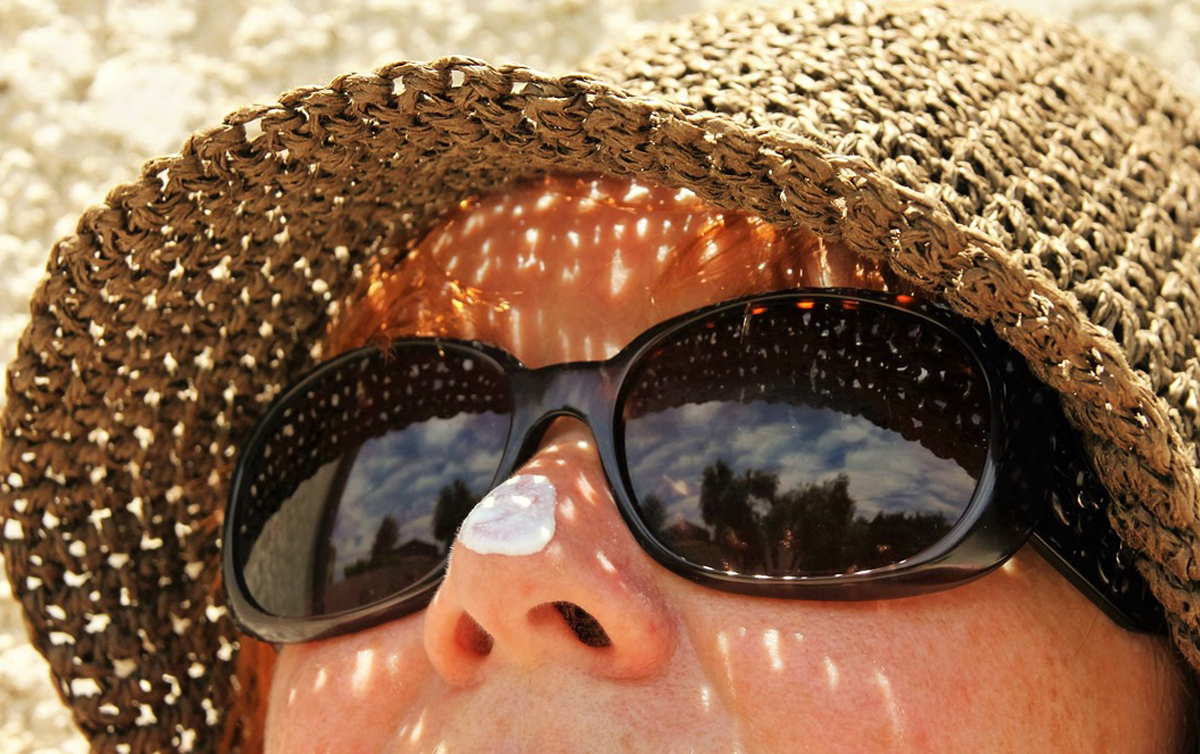
Letter to the editor: Oxybenzone sunscreens do not prevent cancer
This is in response to the story that ran Sept. 24, 2018, entitled – “The oxybenzone-containing sunscreen ban: A formula for future skin cancers?” This article suggests a number of concerns that should be addressed and explained to the American people.
First, it implies that an increase in skin cancers will happen in the future because oxybenzone a common inexpensive ingredient used in 70 percent of the sunscreens will not be used because of the Hawaii ban.
Before we look to the future we should look at the past. The American Cancer Society has been tracking the incidence of melanoma since basically the introduction of sunscreens from 1975 to 2014. Based on the data published in a 2018 peer-review article, melanoma has increased by 283 percent in men and 181 percent increase in women. Additionally, a five-continent study conducted by the World Health Organization also demonstrated that skin and lip cancers have increased in all continents.
No doubt the future looks grim, but only because after 40 years of oxybenzone use no reduction in skin cancer can be observed.
Second, does oxybenzone harm coral?
According to a recent testimony submitted to Hawaiian legislators by the U.S. agency responsible for coral, the National Oceanic & Atmospheric Administration (page 11), “The preponderance of scientific evidence indicates that oxybenzone is toxic to coral and threatens overall coral reef health by: inducing coral bleaching; harming or killing coral larvae by inducing gross deformities, DNA damage, and bleaching; acting as an endocrine disruptor; and bioaccumulating in coral tissue.” Their conclusion is based on scientific testing conducted in a laboratory, which is how all toxicology research is conducted. It would be illegal, unethical, and immoral to evaluate the toxic effects of oxybenzone to coral in any other manner!
Third, the authors conclude that, “in their opinion, there is little definitive scientific research supporting the associated concerns to oxybenzone” — or in other words, this toxic chemical should not be banned.
This conclusion appears to be based on a review of a total of 19 papers referenced in their article. Currently, there are approximately 150 peer-reviewed research papers written by hundreds of scientist from all over the world demonstrating that oxybenzone is mutagenic, can increase the metastatic potential of breast cancer cells, is an endocrine disruptor, can produce reproductive effects in numerous species including humans … the list of toxic side effects goes on and on.
Additionally, “The oxybenzone-containing sunscreen ban: A formula for future skin cancers?” neglects to mention that Dr. Rigel, an author on the paper, worked or works for Neutrogena, which is owned by J&J — the largest sunscreen manufacturer in the U.S. This paper is biased and in conflict with “real science” and based on “alternative facts” to support a toxic chemical that accounts for roughly 70 percent of the $10 billion in global sunscreen sales.
Lastly, oxybenzone is a benzophenone-based chemical. Benzophenone is considered to cause cancer, according to both U.S. and International scientific agencies, and is listed on California Proposition 65 as a carcinogen (but not on any ingredient label). Additionally, when used in conjunction with another sunscreen ingredient called Octocrylene the two chemicals produce a significant amount of benzophenone in a sunscreen product, which will increase your chances of developing cancer, not stop it!
Perhaps the World Health Organizations summarized it best when it concluded regarding the benefits of sunscreen, of which 70 percent contain oxybenzone and almost 100 percent contain octocrylene, “No conclusion can be drawn about the cancer-preventive activity of sunscreens against basal cell carcinoma and melanoma. Use of sunscreens extend sun exposure … which increases the risk of melanoma.”
So if you want to avoid developing melanoma, practice sun avoidance when possible; wear protective clothing, sunglasses, and hats; use a beach umbrella or cabana when on the beach; and use a sunscreen that is safer for reefs and humans like non-nanoparticle-size zinc oxide or titanium dioxide.
—Joe DiNardo, a research scientist with 42 years experience in toxicology, product formulation, and regulatory affairs in the personal care industry
The viewpoints expressed above are those of the author and do not necessarily reflect those of The Independent.
How to submit an article, guest opinion piece, or letter to the editor to The Independent
Do you have something to say? Want your voice to be heard by thousands of readers? Send The Independent your letter to the editor or guest opinion piece. All submissions will be considered for publication by our editorial staff. If your letter or editorial is accepted, it will run on suindependent.com, and we’ll promote it through all of our social media channels. We may even decide to include it in our monthly print edition. Just follow our simple submission guidelines and make your voice heard:
—Submissions should be between 300 and 1,500 words.
—Submissions must be sent to editor@infowest.com as a .doc, .docx, .txt, or .rtf file.
—The subject line of the email containing your submission should read “Letter to the editor.”
—Attach your name to both the email and the document file (we don’t run anonymous letters).
—If you have a photo or image you’d like us to use and it’s in .jpg format, at least 1200 X 754 pixels large, and your intellectual property (you own the copyright), feel free to attach it as well, though we reserve the right to choose a different image.
—If you are on Twitter and would like a shout-out when your piece or letter is published, include that in your correspondence and we’ll give you a mention at the time of publication.
Articles related to “Letter to the editor: Oxybenzone sunscreens do not prevent cancer”
The oxybenzone-containing sunscreen ban: A formula for future skin cancers?
Topical estrogens help reverse skin aging, are safer than oral estrogens



